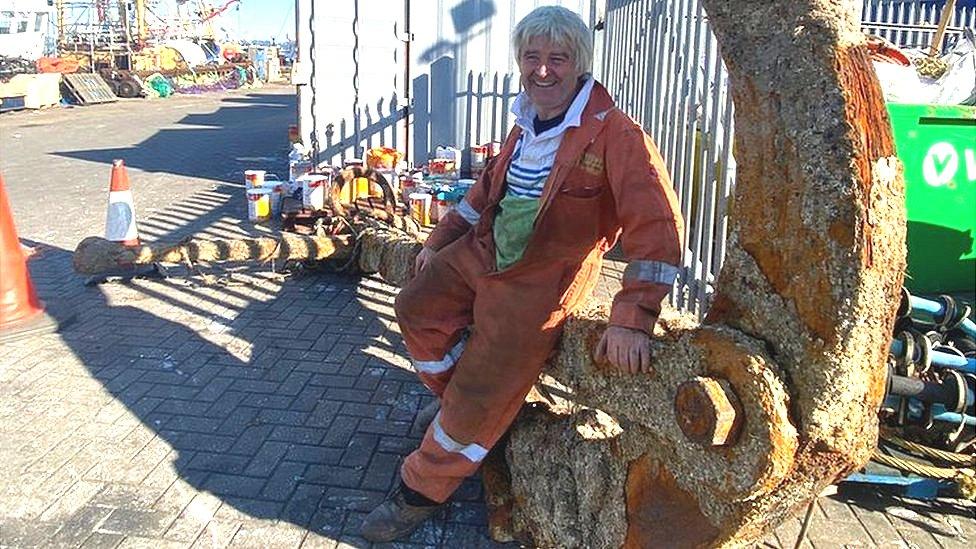Tonne of litter recovered from Devon beach
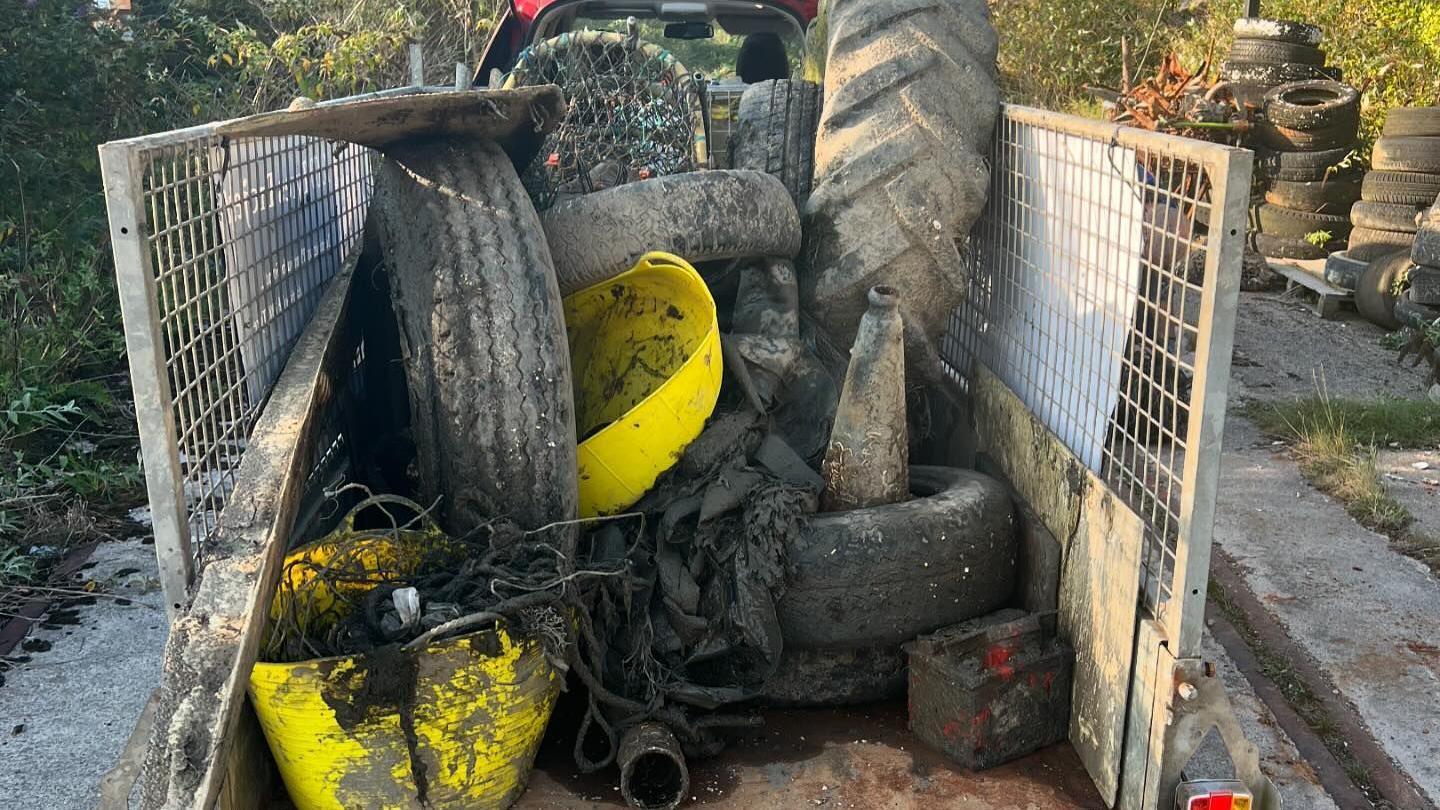
The SHIP Project CIC said it recovered about a tonne of rubbish on 21 September
- Published
A community interest company (CIC) said it collected about a tonne of rubbish during a targeted beach and sea clean on one day.
The SHIPS Project CIC said volunteers removed 939kg (2,070lb) of material from Stonehouse beach at Royal William Yard in Plymouth on 21 September.
The team said it recovered five car tyres, two "massive" lorry tyres, 48kg (106lb) of metals, two road barriers, 124kg (273lb) of plastic, 21kg (46lb) of rubber tubing, 22kg (49lb) of tarps, 21kg (46lb) of rope, one road cone, one lobster pot, one car battery, 17kg (37lb) of wire and 15kg (33lb) of fibreglass.
Director Peter Holt said the tyres were detected underwater using sonar, and recovered by divers.
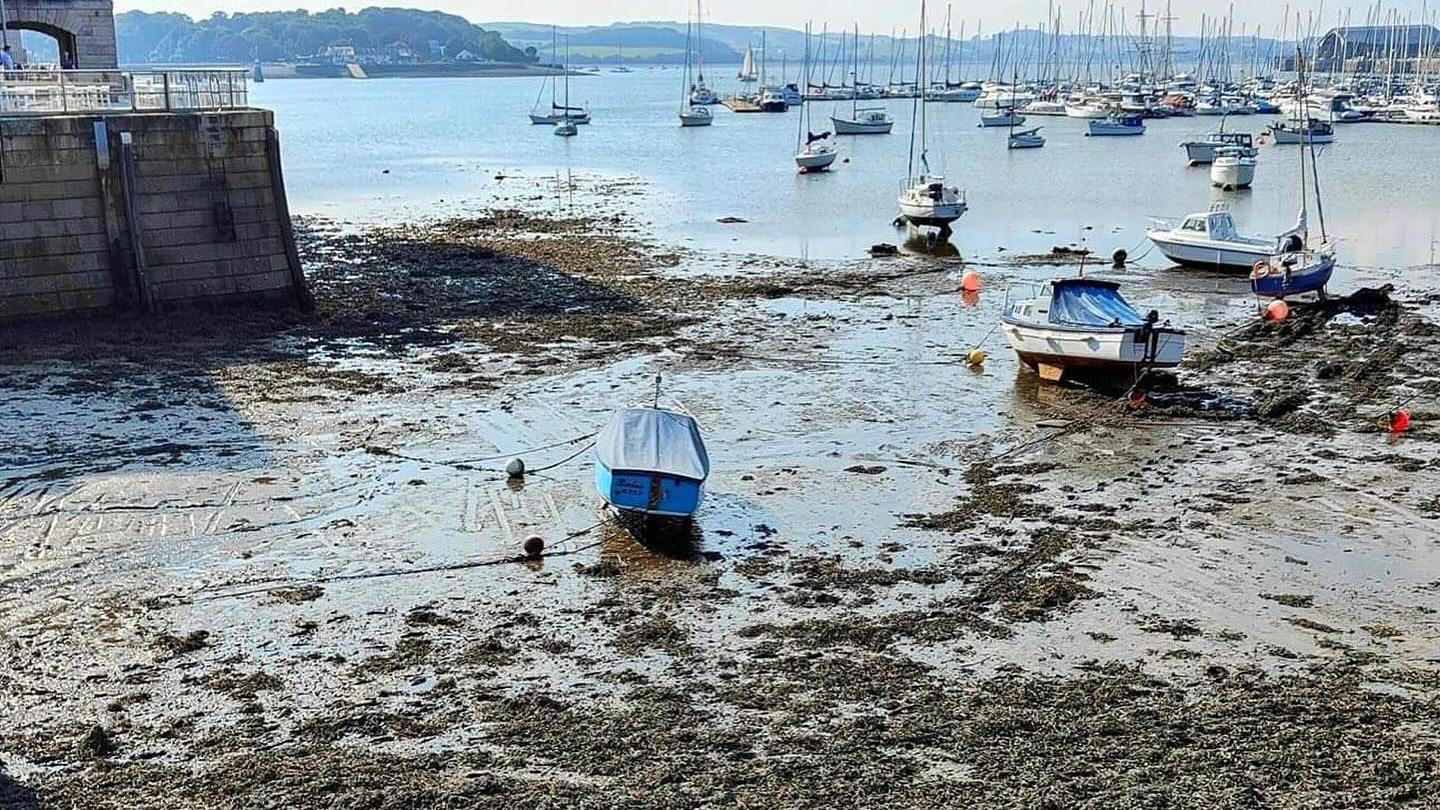
Peter Holt said the group identified tyres underwater using sonar systems
He said the tyres retrieved from the sea were either from fenders on ships which have fallen off the ropes or from cars which have been "dumped in the sea".
"When working at sea we take boats out with trained divers and we train them up in the additional skills they need recover tyres safely," he said.
"We identify the tyres using sonar systems we have run previously, mark the places where the tyres are, send the divers down and they pull them up".
Mr Holt also said they find car batteries and sometimes lorry batteries which were hard to remove due to their size.
There are plans for more clean up events using technology to find rubbish in the sea.
He said: "It is not really being done anywhere else, certainly not on this scale underwater. There is a whole load of problems we have to solve, and we are trying all sorts of different methods.
"It means we don't go out that often. Next year we have a couple of new boats arriving so we will be out in the sea a lot more."
He said the most peculiar thing they have found was a strait-jacket in a Plymouth creek which was in "good condition" after being cleaned.
'Covered in tyres'
Mr Holt said the next event was scheduled for the Waterfront on Plymouth Hoe on 13 October.
Sonar survey have showed the seabed around that area is "covered in tyres", he said.
"There are far more tyres off there than anywhere else, so we are going to target that area with divers.
"We have a lot more to recover and we are going to keep carrying on as long as we can because we keep finding more and more that need removing".
Follow BBC Devon on X (formerly Twitter), external, Facebook, external and Instagram, external. Send your story ideas to spotlight@bbc.co.uk, external.
Related topics
- Published21 July 2022
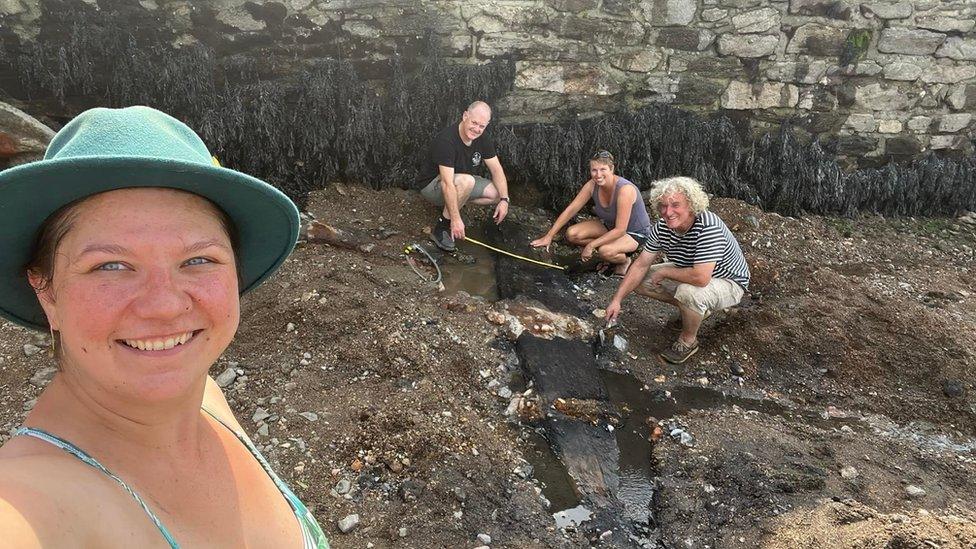
- Published25 January 2023
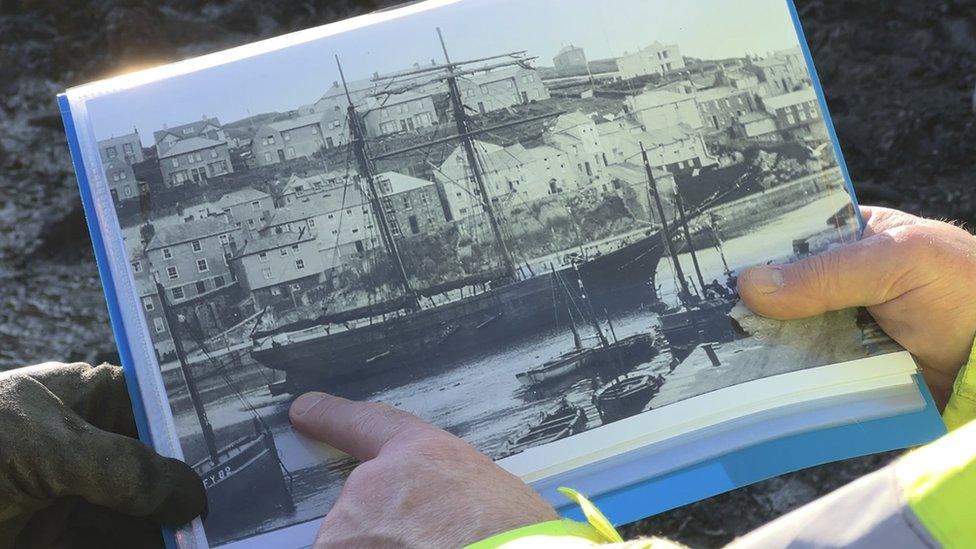
- Published14 October 2021
